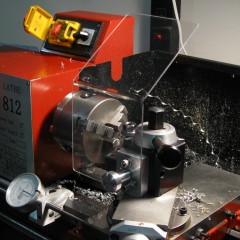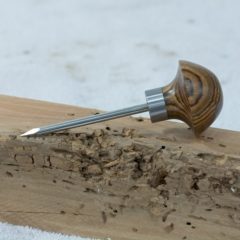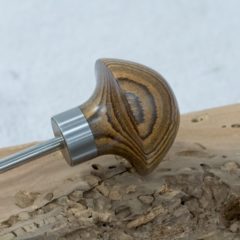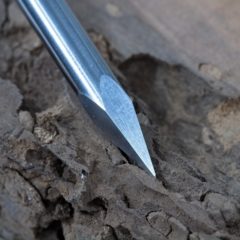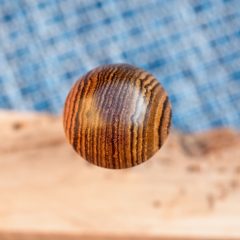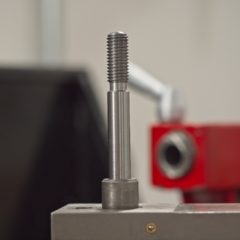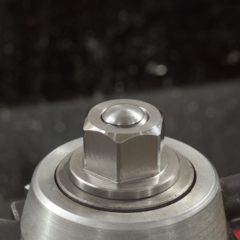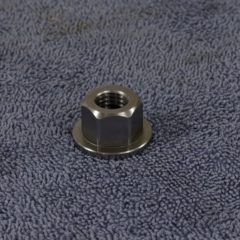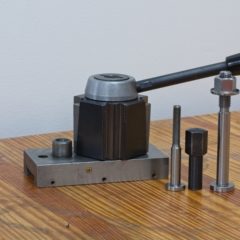A mill stop is one of those simple things that really comes in handy when you need to make multiple of the same part. I’ve used everything form the little tiny ones that clamp to the vise jaws, to Kant Twist clamps. While almost anything will work, sometimes you have a work piece that is difficult to work with do to its size, or shape. When such a situation presents itself, you need a stop that gives you multiple degrees of freedom with regards to positioning the stop relative to the work piece.
Another scenario that you can run into is the stop getting in the way of the operation you need to perform on the work piece. In this case you need to be able to remove the stop to perform the operation, but you also need to quickly and accurately remount the stop for the next work piece.
The stop in the video below, is my attempt to handle all of these scenarios with one simple design.
Continue Reading…
A video that I’ve made slowly over the last few months, that shows the making of a custom birdcage awl.
As I explain in the video, The lathe operations required to make the body of the dresser are more difficult than are probably needed, but it was a fun exercise in maintaining concentricity between features. The milling operations were strait forward and quick to complete. After initial testing I was pleasantly surprised to find that the dresser works even better than I originally anticipated. It yields a nice round wheel, as well as a face parallel to the front of the rest allowing grinding fixtures to be set-up quickly and accurately. It also does an exceptional job of opening up the wheel, thus allowing for a more aggressive cut to be taken while still producing very little heat.
Continue Reading…
Over years I’ve used almost every type of bench grinder dresser on the market, But I’ve never been completely happy with any of them. Star wheels do a good job of opening up the grinding wheel but don’t always produce a flat cutting surface. Carborundum sticks do an okay job of opening the pores, but they too don’t always yield a flat surface. T-handle diamond dressers produce a very flay face in my experience, but have a tendency to dull the wheel. The only type of Dresser I haven’t use is the single point type, mainly because the few that are commercially available wouldn’t work well with any of the grinders I’ve owned.
Back before Christmas, I decided it was finally time to give a single point dresser a try, so I sat down and designed one, that would work with my current grinder. The following video shows making the small parts associated with it.
Continue Reading…
One of the things about my lathe that has always made me feel a little iffy was the QCTP stud. From the factory, it was a very anemic M8, that I’ve broken several times over the years. While taking some heavy cuts during a recent project, it looked almost as if the tool was tipping down because the stud was stretching under the load. I’ve learned from past experiences that I usually have another project or two before the stud gives up the ghost. This time around I decided to upgrade the stud to something with more longevity, instead of turning a replica of the inferior original.
Continue Reading…

